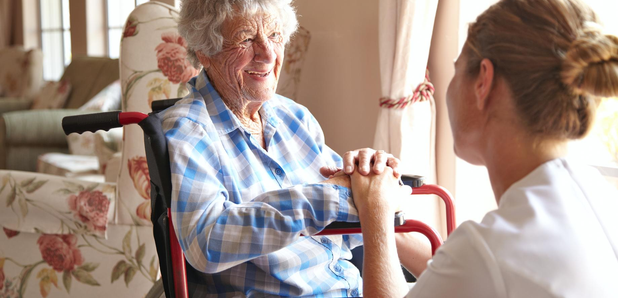Dehydration tests done in Norfolk and Suffolk care homes don't work, according to UEA research
11 March 2019, 16:26 | Updated: 11 March 2019, 16:30

Research by the University of East Anglia has found that tests being used by care homes to test dehydration aren't reliable.
Simple tests to check the hydration levels of patients in care homes, such as looking at their eyes, skin, or asking if someone feels thirsty, tired or has a headache don't work according to researchers Dr Diane Bunn and Dr Lee Hooper.
They carried out tests in care homes across Norfolk and Suffolk and found that the only reliable results came from blood tests.
Which are an expensive and impractical way for carers to tests whether patients are dehydrated.
Lead author Dr Diane Bunn from the School of Health Sciences told Heart our physiology changes as we get older:
"In the same way that our eyesight may fail and our hearing may fail, so too does our thirst mechanism, so we can't rely on that in the same way.
Many of the signs and symptoms that we use to test dehydration in older people, things like looking for a dry mouth, looking at urine colour and looking whether the eyes are sunken at all, we found that none of these signs and symptoms are reliable."
They're encouraging care homes to host afternoon teas, coffee morning or use patients favourite mugs to get the older generation drinking more to prevent the issue.
Dr Lee Hooper from UEA's Norwich Medical School told Heart:
"Low-intake dehydration happens when people don't drink enough fluids to stay healthy, and is very common in older people, including those living in care homes.
It happens for all sorts of reasons, such as weakened thirst sensation - which happens as we age, not remembering to drink or difficulties fetching, carrying and reaching drinks.
Standard tests for dehydration include looking at the eyes, skin, inside the mouth or feeling under the arm to check for dryness, measuring for a drop in blood pressure, or asking if someone feels thirsty, headachy or tired.
But we wanted to know if these tests work in older people living in care homes, how accurate they are, and whether they really tell us if someone is dehydrated. This is important to know because using a test which doesn't work is telling us the wrong thing and health professionals might provide the wrong care as a result."
188 men and women were included in the research and underwent a numberof standard dehydration tests such as looking in their mouth and feeling under their arm, having blood pressure, pulse and temperature measured, and answering questions about how they were feeling, including whether they felt thirsty or not.
They were also given a blood test to test for serum osmolality - the most accurate test available for measuring low-intake dehydration. The results of all the other tests were compared to this 'gold standard'.
